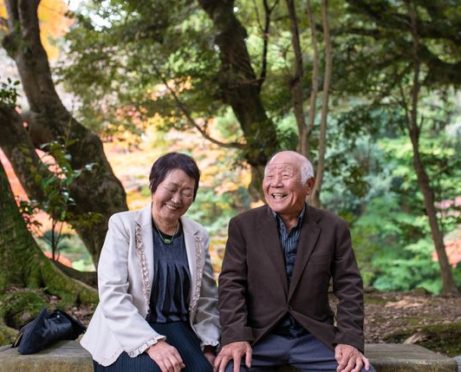
 For the past seven months, I have been writing a book called Flipping a Switch. The book, which will be out by May, describes 35 “flipped switches (i.e., transitions) that people experience in later life. At the end of each chapter is a section called “How to Flip This Switch” with suggested action steps for each transition.
For the past seven months, I have been writing a book called Flipping a Switch. The book, which will be out by May, describes 35 “flipped switches (i.e., transitions) that people experience in later life. At the end of each chapter is a section called “How to Flip This Switch” with suggested action steps for each transition.
Three weeks into COVID-19 shutdowns, some of the “switches” that older adults face are issues many other Americans are also facing right now. In some ways, it is almost like socially distancing workers have been forced into “retirement.” Below are six “flipped switches” with tips for navigating the tough times that lie ahead:
- Creating a “Paycheck”: Follow the lead of retirees who often “patch together” several sources of income when their formal paychecks end. Income sources may include unemployment benefits, savings withdrawals, side hustles, family loans, loans from retirement savings plans, and food from a food pantry in lieu of income.
- Adjusting to a Changed Income: Assess changes in cash flow. Many retirees live on less income than when they were working but some actually earn more with pensions, savings, and continued employment. If you have lost income, try to reduce expenses. If you have extra income, pay down debt and set aside some savings.
- Becoming Fraud Bait: Beware of COVID-19 themed frauds such as “free” (for a fee) home testing kits, bogus cures, “government” benefits, and other false claims. Just as older adults are a frequent target of frauds, so are all Americans when a catastrophic event like a pandemic occurs and scammers prey on people’s fears.
- Avoiding Too Much “Togetherness”: Identify “separate” and “together” activities when the “buffers” of work (and, for parents, school) are gone. Retiring couples often need to do this, too. If you are working from home, create an efficient workspace and try to establish “office hours” when you can work uninterrupted.
- Keeping Busy: Take advantage of extra free time and a slower pace of life to meet minimum recommendations for physical activity, work on hobbies, and start long-postponed projects, just as many retirees do. Feeling bored? Unleash your talents and skills in new ways. Research studies have shown that a little boredom can actually enable creativity and problem-solving skills.
- Staying Socially Connected: Take walks, alone or with a pet or family member, and converse with others at a safe distance. Also consider signing up for a free video-conferencing app to stay connected with others when you cannot physically be together. Isolation is a particular problem for older adults but it can happen at any age.





